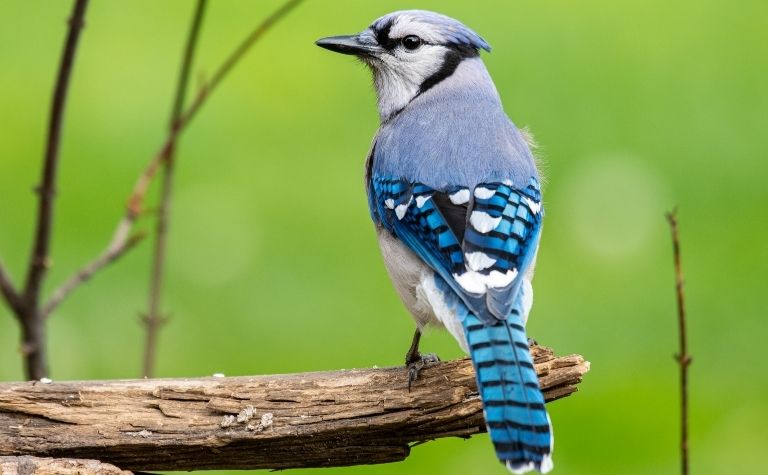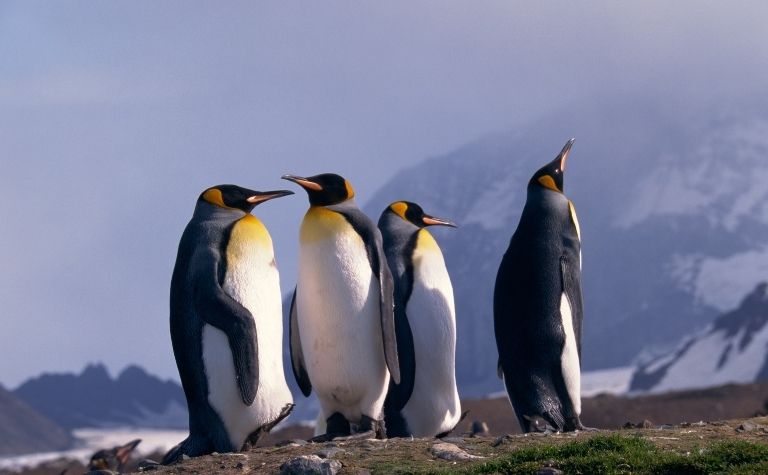The record of the creation account in the first chapter of Genesis is a favorite passage for many Bible readers. They marvel when they imagine the first appearance of light, the formation of the oceans, and the exact placement of the moon within the solar system. Like the other days in the sequence, day five is important as God prepares the planet for habitation.
God created birds and sea creatures on the fifth day. Birds filled the expanse that God created on the second day. Sea creatures filled the waters below the expanse, which God separated from the waters above it on the second day, and fashioned into seas on the third day. Then God blessed them.
Why does Genesis say that God made birds and sea creatures “according to their kind”? What’s the significance of God blessing an aspect of his creation for the first time? How does the fifth day of creation relate to the second day in a special way? Keep reading to learn the answers to these questions and others.
Also see How Long Did It Take Noah To Build the Ark? to learn more.

God created animals that fly and others that swim on Day 5
On the first day of creation, God created light. On the second day, he made the expanse (also called the “firmament”) that separated the waters above the sky from the waters below it.
On the third day, God separated the waters below into seas, enabling dry land to appear on the earth. On the same day, he caused vegetation to appear on the land in the forms of plants and trees to appear and reproduce.
Then, on the fourth day, God created the sun, moon, and stars to light the earth and measure days, seasons, and years. At the conclusion of day four, God considered the earth ready for animal and human habitation. He called all that he made so far “good,” yet his creative work wasn’t yet complete.
Genesis scholar Douglas Kelly writes, “The fifth day of creation carries the divine purpose of providing a home for humanity even further. Day Four saw the addition of luminaries, as it were, ‘outside the house,’ and Day Five sees the addition of some new inhabitants (comparable to ‘furnishings’) inside the house.'” [1]
Animals appear on earth for the first time
Before the fifth day, the sky and the sea were lifeless domains. However, just as God commanded light to appear and it did, he ordered birds to fill the sky and sea creatures to fill the seas, which they did. “Let the waters swarm with swarms of living creatures,” God said, “and let birds fly above the earth across the expanse of the heavens” (Gen. 1:20).
In response to God’s word, birds and sea creatures appeared, each one according to its kind (Gen. 1:21). The first time the creation account mentions the phrase “according to their kind” is during the third day when God called vegetation into being (Gen, 1:10, 12).
The second time is on the fifth day. The third time is the sixth day (Gen. 1:24-25). The common feature of days three, five, and six is the creation of life — vegetation and animals.
Old Testament scholar Gordon Wenham writes, “The implication, though not stated, is clear: what God has distinguished and created distinct, man ought not to confuse (Lev. 19:19; Deut. 22:9-11). Order, not chaos, is the hallmark of God’s activity.” [2]
Also see Who Wrote the Book of Genesis? to learn more.

God blesses for the first time
The fifth day of creation is the first time the text says God “blessed” his creation. “God blessed them, saying, ‘Be fruitful and multiply and fill the waters in the seas, and let birds multiply on the earth'” (Gen. 1:22).
In one sense, all that God had made so far in the creation account had been a blessing, yet the Hebrew word for blessing, first used in verse 22, points to a specific ability that birds and sea creatures have — reproduction.
The sixth day of creation is the other time in the creation account that God specifically blesses an aspect of what he made, which is the ability that people have to reproduce.
The Hebrew word for “bless” is barak (בָרַךְ). In context, the word suggests that God is showing favor to the life forms he made by enabling them to “create” life like him, i.e. reproduce.
Kelly writes, “All of this means that the reproduction of life is the specific blessing of God… This is an utterly different attitude from the pagan materialism of our declining Western society, which sees reproductive increase as a curse rather than a blessing.” [3]
Readers find the theme of blessing throughout Genesis, such as in the stories of Adam (5:2), Noah (9:1), and the patriarchs (e.g. 12:3). Wenham writes, “Where modern man talks of success, OT man talked of blessing.” [4]
The fifth day of creation completed the second day of creation
On the fifth day, God completed the work that he started on the second day, calling it “good” (Gen. 1:21). Thus, the stage is set for the climactic creative acts that God does on the sixth day, which, not coincidentally is the longest single-day description in the first chapter of Genesis.
| Preparation | Completion |
|---|---|
| “without form” (Gen. 1:2) to form | “void” (Gen. 1:2) to fullness |
| Day 1: God created light, separating it from darkness (v. 3-5) | Day 4: God placed luminaries in the heavens (v. 14-19) |
| Day 2: God created the expanse, separating the waters above it from the waters below it (v. 6-8) | Day 5: God placed fish and birds in the sky and seas (v. 20-23) |
| Day 3: God created land and vegetation, separating the waters below the expanse into seas (v. 9-13) | Day 6: God placed people and animals on the land (v. 24-31) |
Also see What Happened To the Garden of Eden? to learn more.

The Creation Account: Table of Contents
Readers are welcome to read follow the links below to learn more about the seven-day creation account in Genesis. For convenience, this table of contents is found at the conclusion of each article in the series.
| 7 Days of Creation |
|---|
| The first day of creation |
| The second day of creation |
| The third day of creation |
| The fourth day of creation |
| The fifth day of creation |
| The sixth day of creation |
| The seventh day of creation |
Also see Why Isn’t the Book of Enoch in the Bible? to learn more.
References:
[1] Creation and Change by Douglas Kelly. p. 268.
[2] Genesis 1-15 by Gordon Wenham. p. 21.
[3] Kelly. p. 272.
[4] Wenham. p. 24.
Related Questions
According to Genesis 3, God placed Adam and Eve in the Garden of Eden to live and have fellowship with him and each other. But then the serpent appeared in paradise. It targeted the first couple,...
The flood story in Genesis highlights the righteousness of Noah and his faith in God. However, the narrative ends in a tragic scene that includes Noah's drunkenness, Ham's unrighteousness, and a...
